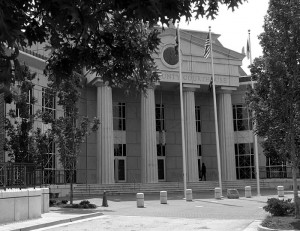Monthly Archives: July 2021

Can I file for a chapter 7 bankruptcy if I’m working? Yes.
You may have been out of work for a period of time or have large medical bills that are making it impossible to get caught up financially.
How much you earn and what types of debt you have will determine what bankruptcy chapter you file but most of the time people who need the help of the bankruptcy court will qualify to file. Simply put, if you earn less than the median income for your state you will pass the means test and may file a chapter 7 bankruptcy.
The means test is based on the median state income which you can find on the United States Department of Justice website. It means that if you earn more than the median income amount in your state the presumption of abuse is raised if you file a chapter 7 bankruptcy. If a presumption of abuse is found you may not be able to get a discharge of your debts.
If you earn more than the applicable median income, you may still qualify for a chapter 7 depending on the type of monthly obligations you have to pay. In that case you will need to calculate a long form of the means test. If after entering secured debts, taxes paid, medical expenses and other qualifying expenses your income is within guidelines then you can file for a chapter 7 bankruptcy.
Some expenses that factor into the long form of the means test are:
|
|
|
|
Even if you qualify to file a chapter 7 there may be reasons why it would be in your best interests to file a chapter 13. If you have an underwater house, owe homeowners’ association dues, owe incomes taxes or obligations arising from a marital dissolution, filing a chapter 13 bankruptcy might be to your benefit. If you have assets that can’t be exempted and would be subject to sale by a chapter 7 trustee, you might want to file a chapter 13 instead. It is a complex, fact specific determination, so consult with a knowledgeable local bankruptcy attorney to determine the best strategy to meet your goals.

What can I expect at the First Meeting of Creditors?
Here is some general information on a Chapter 7 hearing (341 hearing) also called the first meeting of creditors in the Northern District of California.
Plan to arrive 20 to 30 minutes early and do not bring children with you. To enter the building, you’ll have to pass through a security screening. Anyone who wishes to enter the building must have a government issued picture ID. If you’re in the habit of carrying a penknife or similar tool leave it at home or in your car.
For the 341 hearing you MUST have your driver’s license or other picture ID and your social security card with you.
If the trustee wants to see other documentation you will have received this request prior to your hearing. Several different cases are set for the same time so take a seat and wait for your case number and name to be called. Watch these videos to see what some of the meetings look like.
After being sworn in under oath and a few general instructions, you’ll be asked to show your identification documents to the Bankruptcy Trustee. The trustee will look to see that the information on your documents matches that on your bankruptcy petition. You, your attorney and any co-debtor will be sitting in the front of a room with other people in it. Most of these people are debtors like you with their attorneys. Sometimes there are debtors alone without attorneys. Occasionally there are creditors attending to examine debtors under oath.
The proceedings are generally recorded so you must speak clearly and with enough volume to be heard well if the recording needs to be played back some day.
You’ll be asked questions about the forms that you filled out — are they complete and accurate? Are there any changes or errors you now know of? Do you expect to get an inheritance in the next 180 days? Along with these sorts of general questions, you may also be asked about your specific circumstances such as: How you valued an asset, or how your business assets are being used?
Here are some sample questions used in the Northern District of California:
- Name and social security number on the Petition are compared with your identification.
- Do you swear to tell the whole truth and nothing but the truth?
- You filed a Petition, Schedules and a Statement of Financial Affairs, is that correct?
- Is the information on the Petition true and correct?
- Is the information on the Schedules true and correct?
- Did you list all of your assets?
- Did you list all of your debts?
- Did you answer the questions on the Statement of Financial Affairs true and correctly?
- Did you review and sign with your counsel all of the paperwork before filing?
- Are there any changes that you would like to make?
- Was the tax return that you provided a true and correct copy?
- Are you expecting a tax refund this year?
- Does anyone owe you any money?
- Are you suing anyone?
- Do you own any real estate?
- Have you owned any real estate within the past ten (10) years?
- Do you have any domestic support obligations?
- Have you transferred any assets in the past four (4) years?
- Why didn’t your husband/wife file with you?
- Are there any creditors here?
Creditors rarely show up and usually in a Chapter 7 bankruptcy this will be the only hearing you’ll have. If there is a fraud issue, or other motions you’ll have additional hearings.
Covid-19 Update
Note as of June 2020 all of these hearings are taking place via telephone or video calls. Everything above applies except you won’t have to travel anywhere and will be able to have your hearing remotely so you can call in 10 minutes early. It is unclear how long these new procedures will last because it is unclear how long the Covid-19 pandemic will continue to impact the court procedures. For now Seventh Amended General Order 38 extends the court closures indefinitely.